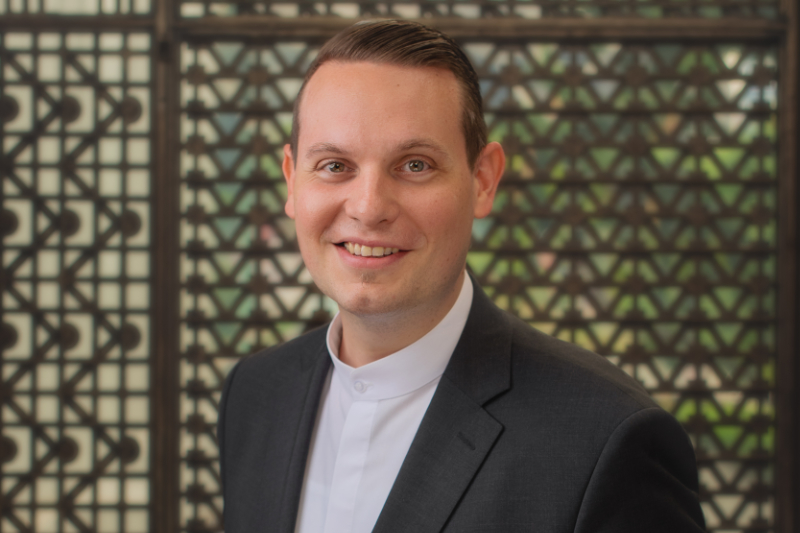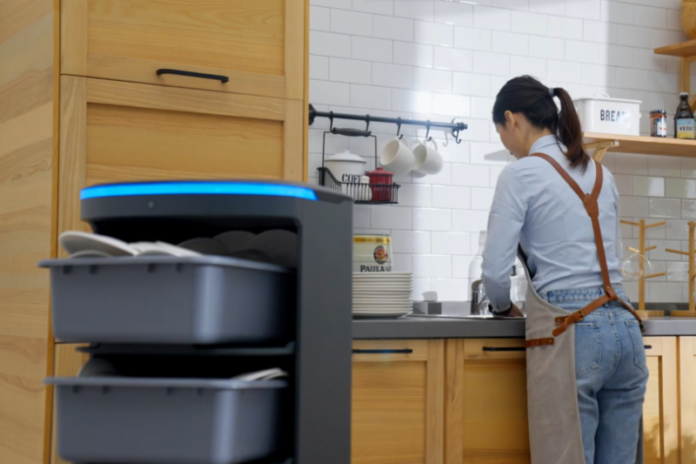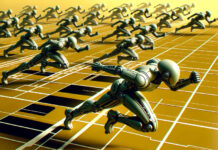The food and beverage (F&B) industry experienced a decline in revenue following the COVID-19 lockdowns, with hotels among the hardest hit. As fine dining was prohibited for safety reasons, business was down and manpower had to be reduced.
To safely reopen the economy, Singapore issued Safe Management Measures at the workplace in May 2020, outlining what businesses must adhere to in order to protect themselves and their customers. As regulations eventually eased up over time, more diners started to return, and for Grand Hyatt Singapore, this was an urgent concern.
That was when the hotel decided to use robots to augment their service staff during dining hours.
Frontier Enterprise spoke with Sebastian Kern, Director of Food and Beverage at Grand Hyatt Singapore, and Eva Hu, Country Manager, Singapore at Pudu Robotics, to learn more about their company’s partnership, as well as their outlook for their industries down the road.
According to Kern, the influx of diners meant more resources were needed to deliver efficient but tailored service to their guests.

“As the restaurant caters to four meal periods a day (i.e. breakfast, lunch, high tea, and dinner), and can host up to over 200 diners at any one given time, having three robots within the F&B venue allowed for a great leap in efficiency and productivity,” said Kern.
“With the implementation of Pudu robots, we managed to improve our level of service etiquette. Pudu Robotics helped with the clearance of used operating equipment from tables and side stations to be brought to the back-of-house stewarding areas. We were able to maintain high standards in our guests’ dining experience with the ability to provide personalised service and deliver requests by our guests more efficiently,” he added.
Tech assist
Grand Hyatt Singapore uses Pudu’s HolaBots for its F&B service. Each HolaBot can carry up to 60 kilograms (or 120 litres) and uses voice recognition for immediate response.
Moreover, the robots allow human staff to spend more time on guests rather than focusing on other tasks, such as table clearing.
“Pudu robots quietly and seamlessly assist the daily operations team with the clearance of used operating equipment such as linens, utensils, and glassware from the guest-facing (front of house) environment to the back-of-house (stewarding) area,” Kern said.
Meanwhile, an intelligent paging function is also built inside the HolaBots, Hu shared.

“The function allows employees to call HolaBots with pagers and watches, ensuring the robot is always ready to help a staff member at a moment’s notice. Pudu robots are equipped with advanced navigation and stabilisation systems, meaning food always arrives efficiently and safely,” she said.
To allow seamless movement of the robots between the guest-facing and the stewarding areas, the hotel also worked with Pudu Robotics on the installation of artificial intelligence (AI) chips.
“Some of our sliding doors leading to the stewarding areas are only accessible through fingerprint biometric verification. The integrated AI in the robots and the biometric sensors verify the robot and allow it to proceed to the stewarding area without human assistance. While I initially thought it would be a challenge, the integration turned out to be quite seamless,” remarked Kern.
On the back end, data collected from the robots allow both Grand Hyatt Singapore and Pudu to improve efficiency.
“Pudu loT is able to process business data in real time, monitor robot operation, and remotely upgrade their software,” said Hu.
Furthermore, Pudu’s customer service and support modules convinced the hotel that the robotics company was the right fit for their modernisation.
“(Pudu has) a very responsive and helpful team who comes to check on the equipment regularly,” Kern noted.
The post-pandemic enterprise
While technologies like automation and AI have no doubt enabled businesses to resume operations during the pandemic, they have also revolutionised industries— eliminating redundancies and allowing safer working environments.
For the F&B/hospitality industry, Kern sees their deployment of robots as a jump-off point for dealing with future challenges.

“Within hospitality, we are seeing a large surge in staffing scarcity over the next few years, despite it being a growing industry. Productivity is quintessential while still delivering tailored and personalised service to the guest. If the two can be combined, this will bring about a tremendous difference. It is not primarily “taking work out of the system” – but working smarter with technology being assimilated within our daily tasks,” he said.
Kern also thinks that the robots they have deployed could be further improved.
“One of the current challenges we face would be the extended service periods required of the robots. As Pudu’s robots are on their “feet” throughout the day during meal times, it would be great if we can push for longer battery life, something I am sure will be addressed in the near future,” he said.
For the next couple of years, Kern enumerated some of the innovations Grand Hyatt Singapore is planning to roll out:
- Geofencing and tagging of “in-house rooms” for improving the productivity and efficiency of the room service department.
- Robots being able to be engaged to send amenities to guest rooms (e.g. a guest requires another toothbrush or slippers). This, said Kern, can be “easily done” via a robot while ensuring hygiene standards.
- Conveyer belt transportation for laundry and stewarding.
- Robots setting up event spaces for large meetings, incentives, conferences, exhibitions, or weddings (e.g. banquet tables and chairs being set up overnight when the hotel’s event spaces are not being used).
Meanwhile, Pudu Robotics has launched its Pudu CC1 cleaning robot, which is designed to assist cleaning staff— another community that Hu noted is facing issues during the manpower crunch. The robotics company has partnered with Singtel unit NCS Group to work on integrating the CC1 into local businesses.
Looking back, Hu believes that the pandemic has been a major learning ground for a lot of business organisations.
“While I believe no person or industry is ever ready for the next pandemic, I also believe that this pandemic has educated many industries and businesses on the importance of equipping themselves with multiple alternatives, to help them get through harsh periods without sacrificing efficiency,” she concluded.
















